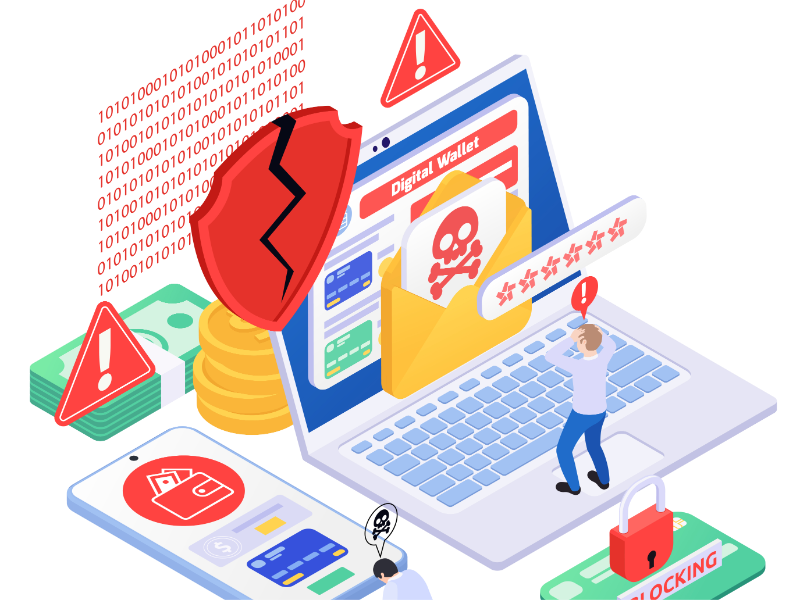- A data breach is a security incident in which sensitive, confidential or otherwise protected data is accessed by someone without proper authorisation.
- The causes of data breach include hacking and physical theft, and it may lead to identity theft, financial losses and cybersecurity risks.
- Solutions include setting strong passwords, having multi-factor authentication and frequently updating software.
OUR TAKE
In an information era, our personal information is easy to be accessed, which may lead to a data breach. Yet, many people do not take it seriously, believing that this information can do them no or little harm. However, the consequences of data breach not only limit in a financial level, and their negligence is likely to result in significant consequences.
–Audrey Huang, BTW reporter
A data breach, which may result from hacking, insider threat, physical theft and human error, can lead to a series of consequences, including identity theft, financial losses and cybersecurity risks.
What is a data breach?
A data breach refers to a security incident in which sensitive, confidential or otherwise protected data is accessed by someone without proper authorisation.
Why would it happen?
- Hacking: It refers to the misuse of devices like computers, smartphones, tablets, and networks to cause damage to or corrupt systems, gather information on users, steal data and documents, or disrupt data-related activity.
- Insider threat: Employees or contractors with access to sensitive data may be tempted to steal it or sell access to it for personal gain.
- Physical theft: Laptops, hard drives and other devices containing sensitive data can be stolen or lost.
- Human error: It means people accidentally clicking on malicious links to using weak passwords.
Also read: What should a company do after a data breach?
Also read: Okta hit with another data breach, shares dip
What are its implications on personal information?
- Identity theft: It may lead to a leak of your Social Security number, bank account information, credit card number or other sensitive data.
- Financial losses: Your credit card numbers or bank account information may be used to make purchases, transfer money or withdraw cash from ATMs.
- Cybersecurity risks: With your personal data, including your names, addresses and phone numbers, criminals may impersonate you.
How to prevent it?
- Strong passwords: A secure password should be a minimum of eight characters long and contain a combination of upper and lowercase letters, numbers and special characters like punctuation, according to the federal Cybersecurity and Infrastructure Security Agency. Moreover, reused passwords should be avoided.
- Multi-factor authentication: It refers to an additional layer of security that requires you to provide additional identifying information, such as a one-time code sent via text or a code provided by an authentication app, as part of the login process.
- Regular software updates: Frequent updates can patch security vulnerabilities, leaving less space for hackers to attack your accounts.

